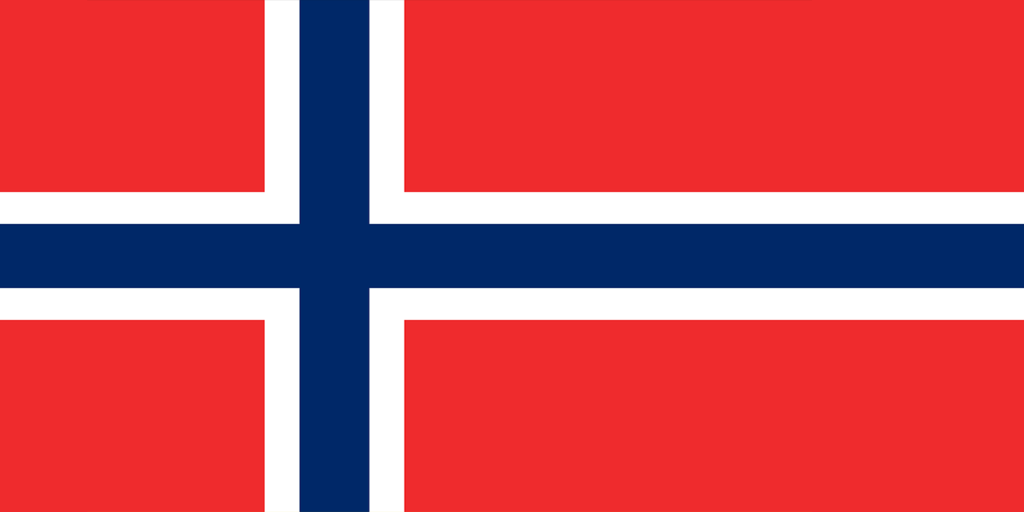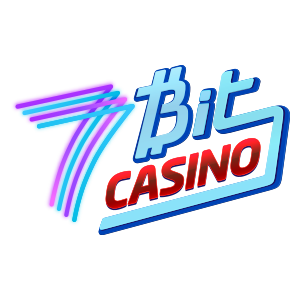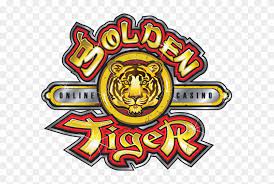
Norway Gambling Regulations
Table of contents
Gambling Regulations for Online Casinos in Norway
As part of the Scandinavian Peninsula, Norway is known for pristine waters, never-ending fjords, and plenty of snow. However, one thing that Norway is not known for is gambling, either online or in-person. Since this country is not part of the European Union, it isn't subject to the same laws as other nations on the continent. As such, the Norwegian government has a tight stranglehold on all gambling activities. One could say that the government has said “Nor-way” to online casinos.
So, with that in mind, here is everything you need to know about online gambling regulations in Norway.
A Brief History of Online Gambling in Norway
While other European countries have a long and sordid past with gambling, Norwegians have never really embraced the culture of betting on games of chance. There are no centuries-old casinos, no flip-flopping on gambling laws, where one century it's legal and the next it isn't.
Part of the reason Norway doesn't have a rich gaming culture is that it is primarily mountainous and rural. These elements mean that it took longer for city centers to spring up over the decades, and even then, the main cities are nothing like what you'd find in other parts of Europe. For example, Norway's capital Oslo has roughly 630,000 residents, compared to the 3+ million people in other urban capitals like Berlin or Madrid.
With a relatively light market, casinos have never been able to gain a foothold. Instead, all gambling (what forms are present) is run by the government. Norway has dabbled in some looser gaming restrictions in the past, but nothing lasted very long. It seems that the Norwegian government is mainly concerned with gambling addiction and wants to protect players from getting out of control.
Here is a quick rundown of some important dates related to gambling, both online and in-person in Norway.
- 1902 – Two pieces of legislation were passed: penal codes 298 and 299. Both of these laws prohibit any games of chance except those offered by state-sponsored entities. Private companies and organizations were banned from engaging in gambling operations.
- 1927 – The Totalisator Act is passed, which allows limited horse betting, specifically parimutuel or pool betting. Players do not get odds against the house. Instead, they bet against each other with a winner-take-all approach. This act laid the groundwork for one of Norway's two gambling entities, Norsk Rikstoto.
- 1992 – The Gaming Scheme Act is passed, which allowed for additional forms of betting. At the time, Norsk Tipping was the only lottery organization in the country. This act expanded its reach to include Lotto, sports betting (not horse racing), and other games, including poker. However, most casino games were still not allowed.
- 1995 – The Lottery Act is passed, which allows nonprofit organizations to host and manage lotteries. This act's primary purpose was to authorize funding for the public good, but private companies exploited the law for profit. One side effect of the Lottery Act was the proliferation of slot machines within the country.
- 2007 – Slot machines are banned in the country, even though they were highly profitable in the early 2000s. The government saw an increase in gambling addiction as slots expanded throughout the country, which helped facilitate the ban.
2009 – Interactive Video Terminals (IVTs) are introduced and replace slot machines. IVTs are like small lottery games and require unique player cards to work.
Is Online Gambling in Norway Legal?
For the most part, Norwegians cannot gamble online legally. The government has banned all online casinos except Norsk Tipping, and even then, the games offered are pretty minimal. That said, while it's technically illegal to gamble at unlicensed online casinos, many residents do so. It seems that the police are not interested in pursuing or prosecuting Norwegian players who venture outside the Tipping zone.
It is very much illegal for casino operators to set up shop in Norway, so Norwegians have to visit “offshore” casinos instead. These rules make Norway a black market country, where online gambling is explicitly prohibited.
Gambling Regulations for Online Casinos Norway
As we mentioned, there have been some different laws related to gambling and casinos, both online and in-person. Here is a more detailed breakdown of these regulations and how they work.
Penal Codes 298 and 299
These codes were originally brought into law in 1902. Code 298 says that no one can make money from gambling unless authorized by a special legislation act. While individual winnings seem to be okay, the regulation states that no person shall “make a living by gambling.” The penalty for violating this law is a prison sentence of no more than one year.
Code 299 simply defines gambling so that the government knows what to prohibit with code 298. According to the law, gambling involves “all games for money or money's worth in which the nature of the game or
the sums at stake indicate that gain is the dominant purpose.” Essentially, if you're playing a game to win money (or a financial equivalent), it's considered gambling.
These two codes effectively outlawed all betting within the country since anyone could get arrested and sent to jail for doing so. The state may also require gamblers to pay back their winnings, which would defeat the whole purpose.
Totalisator Act of 1927
Totalisator games are another way of saying horse racing. This act allowed the government to issue licenses for horse betting to specific organizations. The law stipulated that only groups that supported horse breeding could be granted a license. Even with a permit, the only type of betting allowed was parimutuel, or pool bets. This option means that players can't get odds against the house. Instead, all bettors pool their money, and winners split it at the end, minus the house's take.
Since the Totalisator Act related to horse breeding and betting, it fell under the jurisdiction of the Ministry of Agriculture. Eventually, the only state-run entity to get a license was Norsk Rikstoto, founded in 1982. Rikstoto is the only organization that offers horse betting within the country, and all profits go directly to the Ministry.
Gaming Scheme Act of 1992
Norsk Tipping was initially founded in 1948 as a state-run lottery. However, for many years, the conditions of a lottery were pretty narrow. So, the government expanded the games and betting options that Norsk Tipping could offer with the Gaming Scheme Act.
This act was specific to Norsk Tipping, although it could technically be expanded to other organizations, should the government let outside companies run casino operations within the country. The new games allowed by this act included:
- Lotto – A variation of the state-run lottery.
- Scratch Card Games – Pretty self-explanatory.
- Sports Betting – Any games that are not horse racing, such as football or hockey.
- Machine Games – AKA slot machines.
- Other Games of Chance or Skill – Norsk Tipping does allow poker and a few casino table games online, as they all fall under this category.
Lottery Act of 1995
This law sought to expand the definition of a lottery so that more organizations could offer them for fundraising purposes. As written, the Lottery Act defined lotteries as “any activity in which a participant may for a stake acquire a prize as a result of a draw, guesswork or other procedure which wholly or in part produces a random outcome.”
Based on this definition, slot machines were legalized as long as operators had a license. Another provision of the act was to grant permits to groups with a humanitarian or socially-beneficial purpose (i.e., nonprofit charities). The reasoning behind this expansion was that charitable foundations could raise funds more easily through lotteries and slots than they could through traditional means.
Unfortunately, a lack of oversight and the loose definition of lotteries meant that slot machines increased rapidly throughout the country. Part of the problem was that charities would partner with for-profit companies to expand their outreach, and both partners would share in the earnings. Because of these arrangements, many slot machines were installed. By 2004, slots brought in roughly 26 billion Norwegian Krones.
By 2007, the government decided that slots were creating too many gambling addicts, so they updated the Lottery Act to ban the machines. However, two years later, in 2009, interactive video terminals replaced traditional slots as the go-to device for individual lotteries. IVTs are still legal today, although they are still only allowed for licensed organizations, and all profits go to the public sector.
Regulatory Authorities for Online Gambling in Norway
Currently, there are only two state-run entities that control all gambling within the country – Norsk Tipping and Norsk Rikstoto. Here is an overview of both organizations and what they offer.
Norsk Tipping AS
Founded in 1948, this agency was created to help fund various sports facilities and scientific research. Initially, Norsk Tipping only included the Norwegian state lottery. However, thanks to the Gaming Scheme Act of 1992, the organization expanded its gaming options. Currently, players can participate in the following games:
Sports Betting
Players can place bets at a bookmaker, a licensed kiosk, or online through Norsk Tipping's website. The way that it works is that individuals put bets on the outcome of up to 12 football games during a “play.” Plays are offered on Wednesdays, Saturdays, and Sundays. No betting occurs on the other days of the week. Players can also do some live betting, as they can wager on the halftime and end-time score of a single game.
Poker
Until 2015, the only way to play poker was through Norsk Tipping. However, the government relaxed its rules surrounding home games. Now, Norwegians can play poker at private residences, provided that they follow these rules:
- All participants must be from the same region (no foreigners).
- The maximum amount each person can play with is 1,000 NOK.
- Only up to 10 people can play at a time.
- Only games at private properties are allowed, as long as they are not part of a larger organization or network.
Beyond home games, Norwegians can also play poker online at the Norsk Tipping website. Poker rooms are virtually non-existent within the country.
Lotteries and Bingo
The Norwegian state lottery is called Lotto and happens every Saturday. Interactive Video Terminals are also considered lotteries, although players have to get a special card to use them.
When it comes to bingo, the regulations fall under the Lottery Act. This means that bingo operators have to be licensed, meaning that they have to be a nonprofit organization with a humanitarian or socially-beneficial cause. All profits from the bingo go to the organization.
There are two types of bingo games – Entrepreneur and Business. Entrepreneur bingo is played with licensed entities and a professional prosecutor organizing the contest. Business bingo is open to the public, but the organization has to report its earnings to the Lottery Commission. Business bingo can be played in-person or over the radio.
Online Gaming
If you visit the Norsk Tipping website, you can access bingo games, lotteries, digital scratch games, and casino games. KongKasino offers slots, table games like blackjack and roulette, wheel spins, and jackpot games. The site also has “simple games,” which are like gaming apps you could find for a smartphone.
Norsk Rikstoto
While Tipping handles all of the other types of gaming, Rikstoto oversees horse racing and nothing else. Horse racing in Norway is different than what you see in other countries. While there is one racetrack that offers galloping races, most races use a miniature horse and a chariot instead. This style is called harness racing, and it is quite the sight to see.
Currently, only parimutuel or pool betting is allowed for all horse races in the country. Players can make bets online or in-person at the track.
Gambling Addiction Resources in Norway
Because gambling is not very widespread throughout the country, Norway doesn't offer many resources for gambling addicts. Here are a few options, though:







